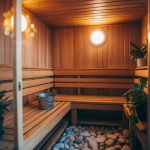DIY Sewing Machines: Top Models Reviewed for All Skill Levels
Looking for the best sewing machines for every skill level? Whether you’re a beginner aiming to start your first DIY project or an advanced sewist seeking to upgrade your equipment, this guide reviews the most reliable and efficient models available. This comprehensive overview will help ensure you find the perfect machine to suit your needs, no matter your experience level.
When it comes to DIY sewing machines, there’s a vast array of options catering to various levels of expertise. For beginners, easy-to-use machines with straightforward features can make the sewing process enjoyable and less daunting. Advanced sewists, on the other hand, may require models with more sophisticated functionalities to support intricate and complex designs.
Selecting the right sewing machine can significantly influence the quality and ease of your DIY projects. With the right model, even the most challenging tasks can become manageable, fostering creativity and precision. This guide will help you navigate through the myriad of sewing machines, offering insights into which models stand out for different skill levels and project types.
Understanding Sewing Machines
Sewing machines come in a variety of types and boast numerous features. Knowing these details helps in selecting the right machine tailored to individual needs and skill levels.
Types of Sewing Machines
Sewing machines are broadly categorized into mechanical, computerized, and serger models. Mechanical sewing machines are often praised for their durability and simplicity, making them ideal for beginners. These machines use manual dials to control stitch selection and length, offering the essential functions without the complexity of digital screens.
Computerized sewing machines, on the other hand, feature digital displays and automated functions. These models can store stitch patterns, automatically adjust tension, and offer a broader range of stitch options. They are suitable for more experienced users who require precision and a variety of functions for complex projects.
Serger machines, also known as overlock machines, are designed for finishing edges and sewing seams with precision. These machines trim the fabric while sewing, providing a professional finish to garments. Sergers are perfect for those looking to expand their sewing capabilities and achieve high-quality finishes on their projects.
Understanding Sewing Machine Features
Different sewing machines come equipped with a range of features that enhance functionality. Common features include multiple stitch options, adjustable tension, and automatic needle threaders. Stitch options range from basic straight and zigzag stitches to more decorative and specialized stitches for various fabrics and purposes.
Adjustable tension is crucial for handling different fabric types, ensuring consistent stitch quality. Automatic needle threaders simplify the threading process, saving time and reducing frustration, especially for those with less dexterity.
Some advanced features in computerized models include programmable stitch sequences, speed control, and built-in embroidery functions. These features allow users to execute detailed and intricate designs efficiently. Understanding these features helps users make informed decisions when purchasing a sewing machine, ensuring it meets their project requirements and skill level.
Selecting a Sewing Machine for Beginners
Choosing the right sewing machine for a beginner involves understanding the essential features that make a machine user-friendly and identifying models that are highly recommended for new sewists. This guide offers detailed information about what beginners should look for and the best starter models available.
Key Features for New Sewists
When selecting a sewing machine for beginners, it is crucial to focus on user-friendly features. Machines with an automatic needle threader can save time and frustration. A drop-in bobbin system is easier to load and helps avoid threading errors.
Machines with a selection of basic stitches are ideal for beginners. Straight and zigzag stitches are essential for most projects, while a buttonhole stitch can be useful. Digital displays and clearly marked dials simplify stitch selection, making the learning process more intuitive.
Beginners should also consider the machine’s speed control. Adjustable speed settings allow new sewists to start slow and gain confidence. Lightweight models are easier to transport and store, making them convenient for those with limited space. A model with a free arm feature can help with sewing cuffs and sleeves.
Best Starter Models
Several models stand out as the best sewing machines for beginners. The Brother CS6000i is popular due to its user-friendly interface and 60 built-in stitches. Its digital display and speed control make it easy to handle, even for those just starting.
The Singer Start 1304 is another excellent choice. It prioritizes simplicity with only six basic stitches, ensuring that beginners are not overwhelmed. Its durable construction and smooth operation provide a reliable starting point for any sewist.
Janome’s MOD-19 offers a balance between simplicity and versatility. With 19 built-in stitches and a user-friendly design, it caters to beginners who want room to grow in their sewing skills. Its compact size and lightweight nature also make it highly portable and suitable for smaller spaces.



